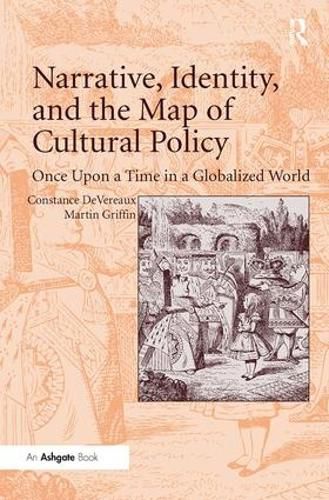Readings Newsletter
Become a Readings Member to make your shopping experience even easier.
Sign in or sign up for free!
You’re not far away from qualifying for FREE standard shipping within Australia
You’ve qualified for FREE standard shipping within Australia
The cart is loading…






The story of arts and cultural policy in the twenty-first century is inherently of global concern no matter how local it seems. At the same time, questions of identity have in many ways become more challenging than before. Narrative, Identity, and the Map of Cultural Policy: Once Upon a Time in a Globalized World explores how and why stories and identities sometimes merge and often clash in an arena in which culture and policy may not be able to resolve every difficulty. DeVereaux and Griffin argue that the role of narrative is key to understanding these issues. They offer a wide-ranging history and justification for narrative frameworks as an approach to cultural policy and open up a wider field of discussion about the ways in which cultural politics and cultural identity are being deployed and interpreted in the present, with deep roots in the past. This timely book will be of great interest not just to students of narrative and students of arts and cultural policy, but also to administrators, policy theorists, and cultural management practitioners.
$9.00 standard shipping within Australia
FREE standard shipping within Australia for orders over $100.00
Express & International shipping calculated at checkout
The story of arts and cultural policy in the twenty-first century is inherently of global concern no matter how local it seems. At the same time, questions of identity have in many ways become more challenging than before. Narrative, Identity, and the Map of Cultural Policy: Once Upon a Time in a Globalized World explores how and why stories and identities sometimes merge and often clash in an arena in which culture and policy may not be able to resolve every difficulty. DeVereaux and Griffin argue that the role of narrative is key to understanding these issues. They offer a wide-ranging history and justification for narrative frameworks as an approach to cultural policy and open up a wider field of discussion about the ways in which cultural politics and cultural identity are being deployed and interpreted in the present, with deep roots in the past. This timely book will be of great interest not just to students of narrative and students of arts and cultural policy, but also to administrators, policy theorists, and cultural management practitioners.